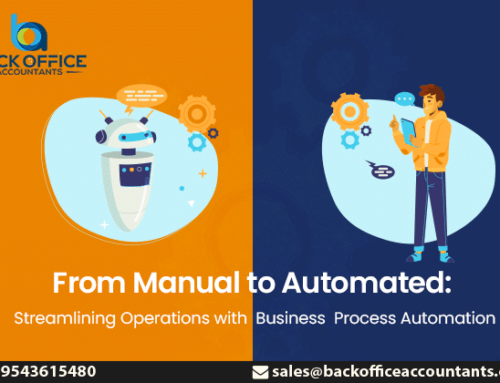Preserving financial stability by effectively managing accounts payable especially in the real estate arena could turn out to be a tough task. This entails processing payments that are accurate, timely, and effective in maintaining strong relations with suppliers, contractors, and vendors.
This article shall delve into three practical approaches for enhancing accounts payable retention within the real estate sector. These options can help you make payments easier, reduce errors, and develop friendly relationships with your financial partners as either developer, property director, or investor. Therefore, let us study these informative suggestions for enhancing your accounts payable practices in the property industry.
Streamlining Invoice Management in Real Estate for Improved Efficiency
In the real estate sector, efficient invoicing processing is crucial for financial management. Invoices must be handled methodically and systematically from the time they are received until they are paid. Processing invoices in the real estate industry usually entails a convoluted web of operations.
Real estate developers, investors, and property management firms handle an extensive variety of bills pertaining to upkeep, utilities, repairs, and other running costs. Processing invoices manually and according to tradition can be laborious, prone to mistakes, and cause payments to be delayed.
This can undermine vendor relationships and result in reduced opportunities for early payment discounts as well as monetary consequences. Real estate accounting firms and agents are using automation and technology to overcome these issues. There are several software options for property management and real estate accounting that can automate a lot of the labor involved in processing invoices now.
These systems eliminate the need for human data input and approval procedures by electronically capturing, coding, and routing bills. There are also an array of advantages to processing invoices efficiently in the real estate industry. It facilitates on-time payments to suppliers and vendors by accelerating payment cycles.
Expense Categorization
The classification of expenses is a fundamental part of the financial management of real estate enterprises. This process outlines all activities done with funds and categories and groups the costs in order to provide an overall outlook. The purpose of this article is to look at expenditure classification when making financial or managerial decisions in the real estate industry. One of the major benefits of cost categorization is that it can foster responsible conduct as well as honesty with regard to financial affairs.
Property owners, managers, and investors can easily see where their money is going, whether it is for utilities, real estate bookkeeping services, or property upkeep. Maintaining control over spending along with making sure that resources are distributed properly depends on this level of transparency.
Expense classification is equally essential in making financial statements such as balance sheets and financial statements. These statements are essential in evaluating the profitability and financial position of real-estate projects. Accurate classification of costs helps real estate experts determine net income, monitor cash flow, and evaluate return on investment.
In addition, expense classification facilitates vendor discussions. By strictly categorizing costs, real estate agents can easily pinpoint cost reduction possibilities and opportunities to optimize. This results in long-term cost savings and better deals.
Elevating Real Estate Financial Management Through Team Training and Growth
Building a winning team, capable of achieving financial success in the area of real estate, starts with employees` training and development. This process entails increasing the skills of your accounting and finance team to effectively handle the complexities that come with real estate financial management.
In such a complex area as real-estate financial management, one should have a deep understanding of how property accounting works, tax regulation, accounts receivable services, and specific software used by certain industries.
Managing the financial components of real estate is quite complex because your employees should continually perfect their skills, and follow the latest trends in modern industries and practices. Staff development and training in real estate companies offer many advantages. It helps to make sure that your accounting department knows the industry-specific accounting rules for your respective sector.
Some of the trainings include real estate asset financial reporting and property valuation etc. Moreover, investing in talent development could improve the precision and speed in the provision of the services thus impacting financial operations’ accuracy and efficiency. Property transactions have most times taken a lot of caution as they entail huge sums of money.
For optimal application of these strategies, work with specialists who understand complexities in real estate financial management. Back Office Accountants is a company that offers specialized accounting services for the real estate sector.
The seasoned professionals on our side have great knowledge about the distinctive challenges and possibilities of the real estate industry. These tailor-made accounting options enable us to simplify your accounting systems and improve their precision while making costs as efficient as possible.







